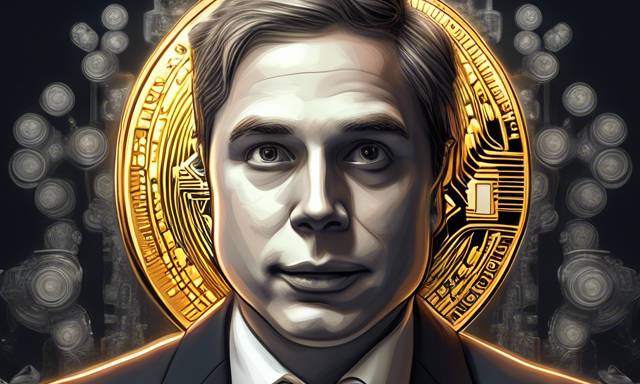Is Bitcoin’s Safety In The Hands of Big Institutions?
So, I was surfing through news about Bitcoin recently—there’s always something buzzing in the crypto world—and I stumbled upon a heated debate stirred up by none other than Michael Saylor, CEO of MicroStrategy. He’s got quite the reputation in our community, and kitchen table talk just went to a whole new level when he casually tossed around some thoughts about Bitcoin’s custody with big institutions. Intrigued? You should be! This could have serious ripple effects on the crypto market.
Key Takeaways:
- Institutional Custody vs. Self-Custody: Saylor believes that Bitcoin is safer when held by highly regulated financial institutions like BlackRock and JP Morgan.
- Regulation and Trust: He argues that regulated entities create a safety net compared to “crypto anarchists” who don’t follow government regulations.
- Community Backlash: Many in the Bitcoin community vehemently disagree, emphasizing the importance of decentralization and self-custody as core principles of crypto.
- Historical Context: Saylor referenced historical events to argue that today’s economic climate does not warrant the same fears of confiscation as the past.
Institutional Custody vs. Self-Custody
Okay, let’s break this down. When Saylor sat down with journalist Madison Reidy, he was directly asked about the risks of big institutions holding large amounts of BTC. His response? A resounding “no worries.” He thinks that it’s actually less risky if Bitcoin is in the custody of regulated entities, like Fidelity or State Street Bank. His logic is pretty straightforward: Senators and congressmen have their retirement funds tied up in these institutions. There’s no way they’d let government seizure happen there, right? It’s like saying the government would swoop in and take over your grandma’s investment because they felt like it. Doesn’t sound plausible.
Saylor also dismissed comparisons to the infamous gold confiscation during the Great Depression, suggesting we’re in a totally different world now. “We don’t even have a gold standard anymore!” he said. He painted a picture that led many to think, “Hey, maybe there’s something to this.”
But here’s the kicker: a lot of crypto enthusiasts see this as a slippery slope. The whole point of Bitcoin is to empower individuals. They believe that Saylor’s approach might ultimately hand over too much power to institutions, which feels kinda backward to those who prize the original tenets of decentralization and self-custody. It’s like celebrating the convenience of a big bank while ignoring the fact that it’s not exactly what crypto was created to fight against.
The Bitcoin Community’s Response
This is where things got spicy. A few influential figures in the Bitcoin space shot back at Saylor’s views. Jack Mallers, the CEO of Strike, made it clear that calling self-custody “crypto-anarchism” oversimplifies the whole concept of what Bitcoin stands for. For many of us, it’s about economic freedom and property rights. Honestly, this is where the heart of the debate lies. Freedom isn’t just promised; it’s something we must advocate for, right?
On the flipside, some like Sina Nader completely slammed Saylor’s stance. His response was like a thunderclap in the community, arguing that Saylor’s comments relegate Bitcoin to just another investment vehicle, robbing it of its essence as a currency. The general sentiment seems to echo that Bitcoin should empower individuals rather than surrender them to institutional oversight.
Practical Tips for Timing the Market
So, where does that leave us as investors? If you’re thinking of diving into Bitcoin, here are a few practical tips I’d recommend, especially with the current climate and conversations happening:
-
Self-Custody Solutions: Before deciding where to store your Bitcoin, really consider a self-custody solution. Hardware wallets or cold storage methods can give you control, making you less dependent on third-party custodians.
-
Stay Informed: Keep an eye on developments around regulations. Understanding the changing landscape can help you adjust your strategy. You don’t want to be caught flat-footed if something shifts dramatically.
-
Diversify Holdings: While Bitcoin offers unique advantages, consider diversifying into various assets within the crypto space or traditional markets. A balanced approach can mitigate risks.
-
Embrace Debates: Engage in discussions around the topic! Join forums or online communities where people enjoy sharing their insights. Different viewpoints can help you refine your own understanding.
- Think Long Term: If you believe in Bitcoin’s future, it might be worthwhile to take a long-term view. Don’t get bogged down by short-term fluctuations and debates. After all, we’ve seen Bitcoin weather storms before.
Personal Insights
Honestly, I see merit in both sides. Yes, it can feel safer to have your assets managed by a reputable institution. But there’s this intoxicating sense of freedom that draws me to Bitcoin in the first place. The idea of owning something that exists outside of traditional financial systems gives me hope. It’s like being able to hold onto your piece of the future.
What worries me is that if we start viewing Bitcoin merely as an investment—like another stock that you hold for dividends—we might be losing sight of its revolutionary potential. On the other hand, I admit, the thought of a government seizure is pretty terrifying, even if I’d love to believe it’s not going to happen. It’s a mixed bag of emotions, for sure.
As we navigate through this ever-changing landscape, here’s a thought to chew on: Are we as a community willing to exchange our freedoms for supposed safety, or is the inherent risk in self-custody worth the potential rewards? What does that really mean for the future of Bitcoin?





 By
By
 By
By
 By
By
 By
By

 By
By